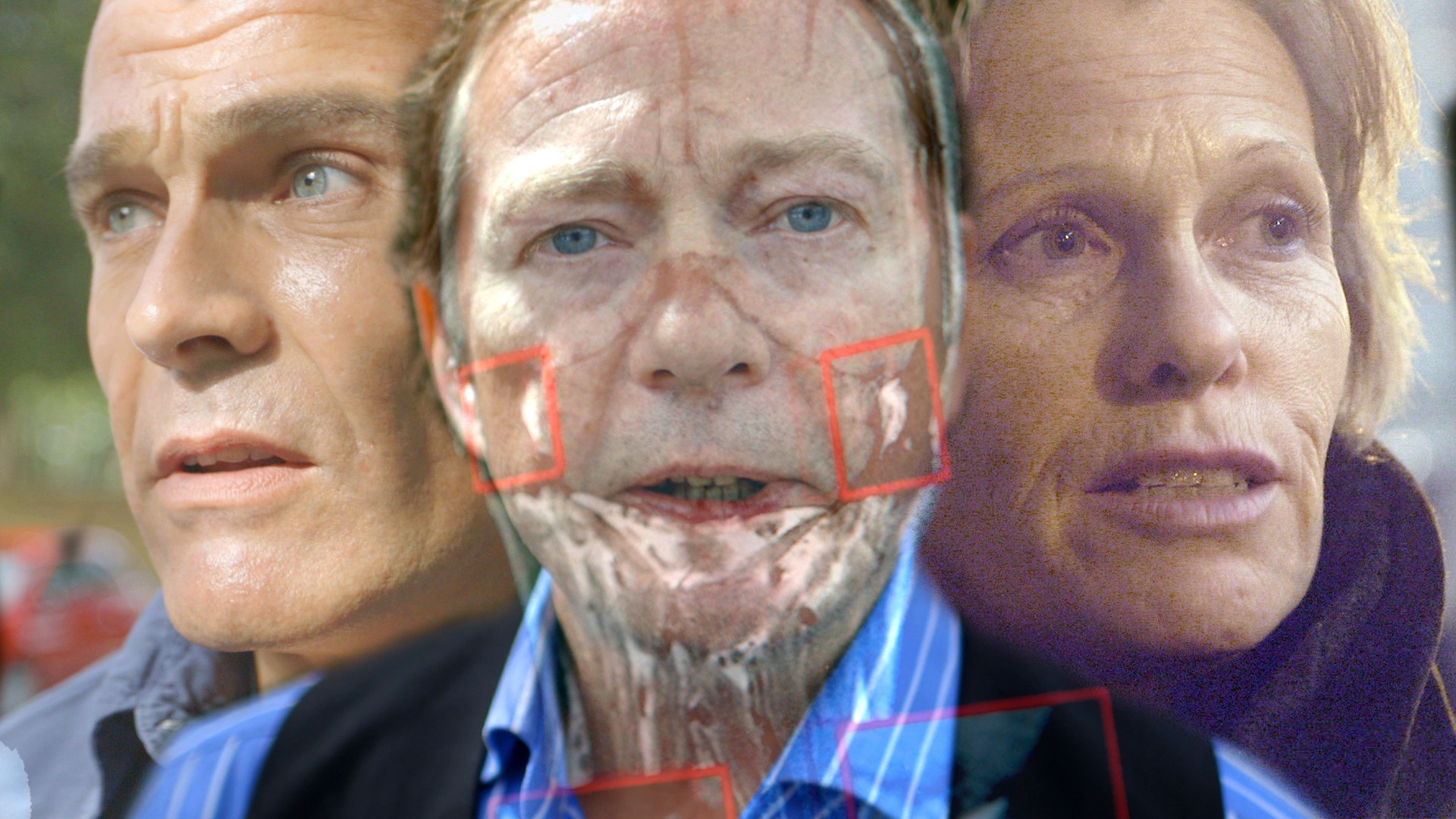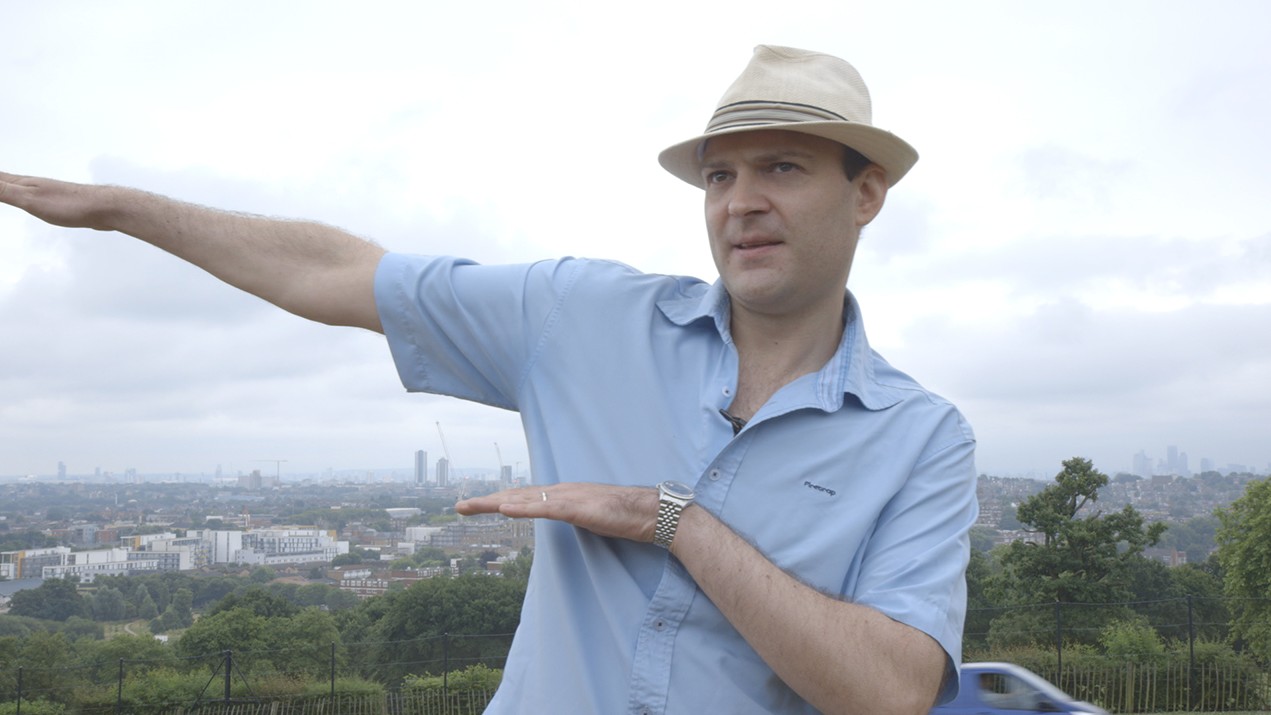This article originally appeared on VICE NetherlandsPart of the modern human condition is to be on the internet all day and get physically uncomfortable and stressed out about everything you see and read. However, there's a significant group of people whose stress levels go into overdrive before they've even read a word online – people who claim that the fact the internet simply exists has a negative impact on their health. These people are dealing with a condition called electromagnetic hypersensitivity (EHS), meaning, they say, that they suffer from a range of physical symptoms when exposed to electromagnetic fields from things like wifi routers, mobile phones and TV sets.
Advertisement
Not everyone in the medical community is convinced that EHS is an actual medical condition. A 2007 study by the University of Essex found that participants claiming to have EHS only experienced symptoms when they were told that a phone mast nearby was "switched on". When participants didn't know whether the mast was on or not, the signals had seemingly no effect on their health.Still, that doesn't take away from the fact that around 5 percent of the UK population think they're affected by EHS. If the condition sounds familiar, that's probably because it's prominently featured in the Breaking Bad spinoff Better Call Saul, in which Saul's brother Chuck hides away in his own home to protect himself from all the electromagnetic signals the world sends his way.Since I cannot imagine living in a civilised world without internet, I'm interested to find out what it's like when you believe it actually makes you feel physically ill. To find out, I contacted two women dealing with EHS – Nanny and Martine – who invited me to spend the day with them in their wifi-free bunkers.
WATCH:
Martine picks me up at the train station in Steensel, a small town in the south of the Netherlands. As soon as I get in her car, she politely asks me to turn off my phone – or, at the very least, put it on flight mode. Since I don't want to make her feel sick and I'm here for the full experience, I do what she asks.
WATCH:

Martine picks me up at the train station in Steensel, a small town in the south of the Netherlands. As soon as I get in her car, she politely asks me to turn off my phone – or, at the very least, put it on flight mode. Since I don't want to make her feel sick and I'm here for the full experience, I do what she asks.
Advertisement
Martine, who's in her forties, used to work in the legal department of a high-profile refugee support organisation in Amsterdam. That was until she started feeling the need to get away from what she considered an overdose of wifi and radiation, and flee the city."I was completely burned out," Martine tells me. "You sort of force yourself to just keep going until something breaks inside you."
Nanny's kitchen is covered in tin foil to protect her home from the neighbours' wifi. Both Nanny and Martine asked not to be photographed for this feature.
Martine says she is one of the few people in the Netherlands whose symptoms has been recognised by the government – though the authorities which granted it haven't officially declared electromagnetic radiation to be the cause of her feeling sick. Today, she provides legal aid to others with EHS. It hasn’t been easy – many researchers in the field believe EHS to be a psychological issue, with some specialists believing it's the fear of radiation itself that could be unhealthy. Martine pushes back at this notion, pointing me to other studies she says prove the harmfulness of radiation.We arrive at Martine’s home – a wooden house built right next to her parent’s place. Her dad, a scientist, also claims to have EHS, and considers himself an expert on blocking out radiation. Martine’s friend, Nanny, who's in her fifties, has been staying with her the last few days to get a break from the electromagnetic fields in her own home. She runs the website EHS Zichtbaar, which she hopes will raise awareness of what she thinks are the unhealthy effects of the ever-present wifi in our daily lives. Her husband helps run the website, though his love for gadgets often gets the better of him. "John loves his smartwatch," Nanny says. "but it makes me so ill it has to live in a drawer for now." Nanny doesn’t hate technology – but she wants to see wifi replaced with something healthier.
Advertisement
Nanny never goes outside without wearing her protective headgear, which looks like a beekeeper's hat made out of silver wiring. Just ordering the outfit alone was a huge ordeal – Nanny can’t use a computer or talk on the phone without falling sick for the rest of the day.Nanny takes me for a walk around the woods behind Martine's home, and explains why she thinks radiation might be the new asbestos. "A lot of people just assume it’s safe and tested, or don’t even want to think about it at all," she says. "There are so many terrible things happening in the world, I can understand why people just want to get on with their lives without having to worry about radiation pollution. Being afraid all the time isn’t healthy either."
Nanny lives in a small caravan in her garden to get away from her fuse box.
Back at the house, the three of us enjoy a light lunch and an intense discussion about the negative impact of society’s obsession with social media. Halfway through, Nanny starts to get very nervous and takes out a small device to check the room’s radiation level.In turn, I get uncomfortable as the equipment’s long antennae lingers over my laptop. "Just taking a quick look to be certain," Nanny says, in an attempt to reassure me. Luckily, it’s a false alarm. I ask if I can test the device to see if it really works. Martine gives me the go-ahead to switch my phone on for a few seconds.When I turn off flight mode, messages from the outside world start flooding my phone. Soon after, the radiation meter starts squeaking hysterically, with alarm lights flashing bright red. Embarrassed, I turn off my 4G and the detector falls silent. A few seconds later, I secretly turn my phone back on to be sure the meter isn't being manually operated by Nanny or Martine. But just as before, it screams and flickers, detecting my phone’s electromagnetic field.
Advertisement
Nanny normally lives with her family in Geldrop, a town about half an hour's drive away. But every so often, when she finds the electromagnetic radiation around her overwhelming, Nanny visits Martine and her dad for a few days to recover. She is returning home today after five days with her friend, and has invited me to come along. As Martine drives us both out, I’m struck by how uncomfortable Nanny must be, leaving the relative safety of the woods to return to an environment she's convinced is making her sick. We mainly stick to country roads to stay as far clear of transmission towers as we can. "At a certain point, you start seeing them everywhere," Martine says.
WATCH: 10 Questions You Always Wanted to Ask a Flat Earther
Nanny's husband John, her two teenage daughters, her visiting mother-in-law and the family dog are all there to welcome her back. "Nanny, don’t sit there," her mother-in-law warns her soon after she walks in. "John and I measured earlier and that’s the worst spot in the entire house."On my tour of their home, Nanny tells me the walls are plastered with special anti-radiation paint and that the kitchen is covered in tin foil to keep out the neighbours' wifi. Nanny says that's still not enough to rid the house of radiation completely, because "there is an electromagnetic field in the fuse box". So Nanny lives in a caravan in the garden, but comes inside for dinner."It was fun in the beginning," she explains. "It felt like being on holiday. But now I’d love to be able to permanently move back inside the house."
WATCH: 10 Questions You Always Wanted to Ask a Flat Earther

Nanny's husband John, her two teenage daughters, her visiting mother-in-law and the family dog are all there to welcome her back. "Nanny, don’t sit there," her mother-in-law warns her soon after she walks in. "John and I measured earlier and that’s the worst spot in the entire house."On my tour of their home, Nanny tells me the walls are plastered with special anti-radiation paint and that the kitchen is covered in tin foil to keep out the neighbours' wifi. Nanny says that's still not enough to rid the house of radiation completely, because "there is an electromagnetic field in the fuse box". So Nanny lives in a caravan in the garden, but comes inside for dinner."It was fun in the beginning," she explains. "It felt like being on holiday. But now I’d love to be able to permanently move back inside the house."
Nanny's anti-radiation garms.
As fascinating as I’ve found Nanny and Martine's wifi-less worlds, I achingly miss my own normal existence, however much radiation might be swirling around it. Just as I'm about to leave, Nanny brings out her line of novelty T-shirts, which she created with her husband and sells on their website. The shirts have anti-radiation slogans printed on them, like "Want kids? Don’t fuck with your phone", and "Feeling Blue-tooth?".After I say my goodbyes, Nanny asks her daughters to escort me to the nearest bus stop. I ask them how they feel about their mum being away so often. "It was nice to have wifi for a few days," they tell me, "but in the end, it’s better to have your mum around."
